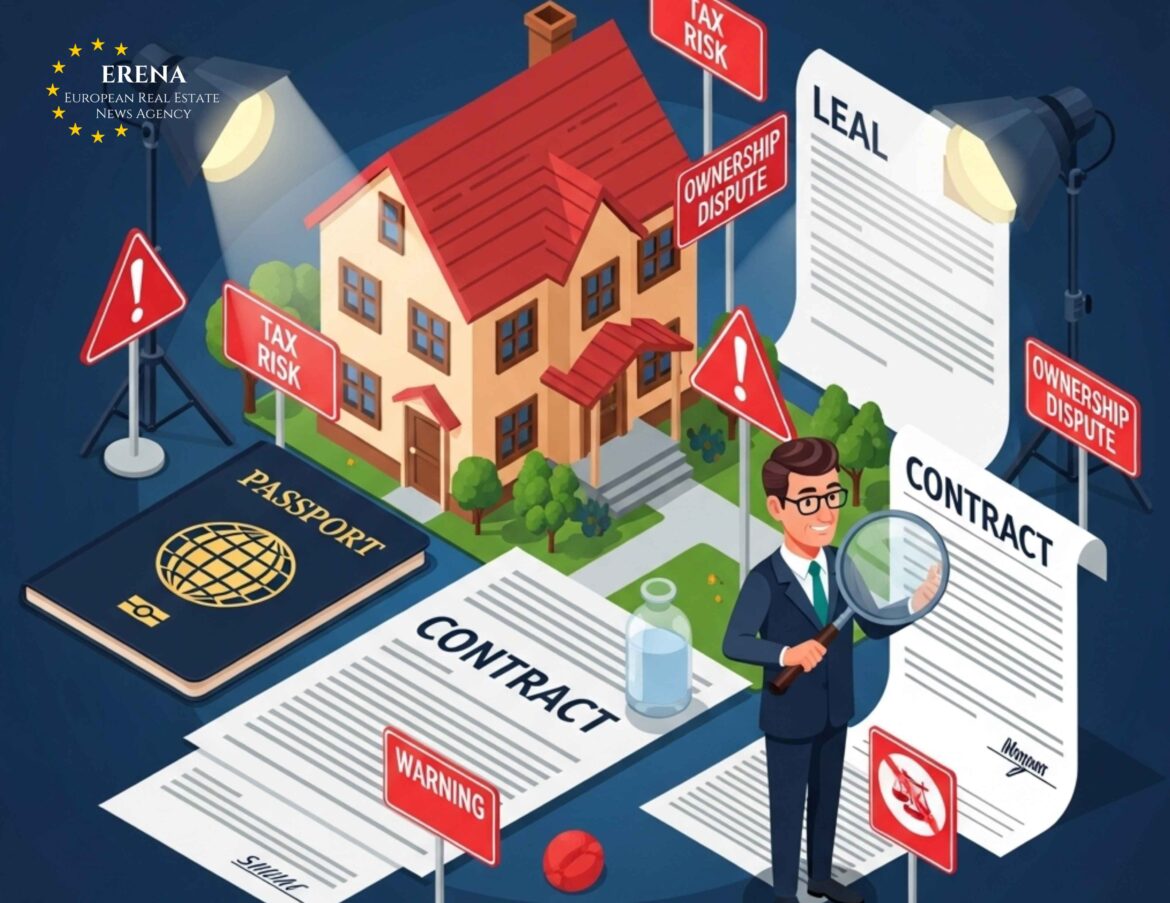Investing in foreign real estate is an attractive way to diversify your assets, hedge against inflation, and generate rental income or long-term capital gains. As global property markets open up and international mobility increases, more investors are seeking opportunities abroad—from beachfront apartments in Spain to rental properties in Eastern Europe or Southeast Asia. However, behind the promise of high returns and lifestyle perks lie a number of legal pitfalls that can cost you dearly if not addressed in advance.
This article outlines the five most common legal traps that international investors should watch out for when purchasing property abroad, along with expert recommendations on how to avoid them.
1. Unclear Property Title or Legal Status
One of the most dangerous mistakes is purchasing a property with unclear or disputed legal status. In some countries—especially those with developing legal systems—properties are built without proper permits or lack clear land ownership documentation. The property may appear physically complete, but from a legal standpoint, it may be considered illegal construction.
In some cases, foreign buyers unknowingly purchase homes that are under litigation, encroach on protected land, or violate zoning laws. These issues can result in your ownership being annulled or the property being subject to demolition or fines.
How to avoid it:
- Always request official documentation, including land registry certificates, building permits, and certificates of occupancy.
- Hire a local independent real estate attorney who is not affiliated with the seller or agent.
- Avoid buying off-plan or pre-construction properties without full legal due diligence.
2. Restrictions on Foreign Ownership
Many countries impose legal restrictions on property ownership by foreigners. These may range from full bans in certain zones (e.g., near borders or agricultural lands) to limitations on the type of property or how much land you can own.
In places like Switzerland, Indonesia, or the Philippines, foreign buyers may only have access to long-term leaseholds rather than full freehold ownership. Without understanding these differences, you may end up with a property you can’t truly control.
How to avoid it:
- Research ownership laws for foreigners in the target country before making any commitments.
- Make sure you are receiving actual property rights (freehold) and not just a lease or occupancy license.
- Clarify whether there are limits on the number of properties or square meters you can legally own.
3. Taxation Issues and Double Taxation
International real estate investments come with complex tax implications. You may be subject to local property taxes, capital gains tax, rental income tax, and—on top of that—report and pay taxes again in your country of tax residency.
Some countries also impose inheritance and gift taxes on real estate owned by foreigners. If you’re not aware of these obligations, you could face unexpected bills, penalties, or legal consequences.
How to avoid it:
- Consult a qualified international tax advisor with experience in cross-border real estate transactions.
- Check whether your home country has a double taxation treaty with the country in which you’re investing.
- Calculate not just purchase costs but also ongoing taxes, municipal fees, and closing costs, which can add 10–12% or more to the property price.
4. Money Transfer and Payment Risks
Transferring money across borders for real estate deals can be challenging. Countries with strict currency controls—such as Argentina, China, or Egypt—may limit or delay the transfer of funds. Moreover, wire fraud and scams involving offshore accounts are not uncommon in international transactions.
Sending money to the wrong account or paying a “deposit” to an unlicensed party can result in irretrievable financial loss.
How to avoid it:
- Only make payments through verified escrow services or licensed banks.
- Verify the legal identity of the seller or developer and match bank account details to registered business names.
- Avoid wiring funds to private or offshore accounts, even if suggested by a trusted agent.
5. Inadequate Contracts and Language Barriers
Signing a contract in a language you don’t understand—or relying on an unofficial translation—is a recipe for disaster. In some jurisdictions, only notarized and registered contracts are legally binding. Others require specific legal terms to be enforceable.
Many buyers fall into the trap of signing poorly written contracts that omit critical details such as handover dates, penalties for delays, title guarantees, or terms of withdrawal. This creates loopholes that developers or sellers can exploit.
How to avoid it:
- Never sign a contract without a certified legal translation and review by a local attorney.
- Ensure the contract is notarized and registered in accordance with local real estate laws.
- Confirm that the agreement includes clear terms on payments, delivery deadlines, buyer protections, and remedies in case of breach.
Additional Tips for Safe International Investing
- Title insurance: In some countries, you can purchase title insurance to protect against claims on the property after purchase.
- Background check of developers: Especially for new builds, research the track record of the developer, including past projects and litigation history.
- Power of attorney: If you can’t be present, appoint a licensed local attorney through a notarized and legalized power of attorney—never use a general proxy without checking credentials.
Conclusion
Investing in foreign real estate can be a lucrative and strategic move, but only if done with proper legal safeguards. The dream of owning a villa in Tuscany or a beachside condo in Portugal can quickly become a nightmare if legal traps are overlooked.
By understanding and avoiding the five common legal pitfalls discussed above, and by working with qualified local professionals, you can protect your investment, ensure compliance with international laws, and enjoy all the benefits of global property ownership with peace of mind.

